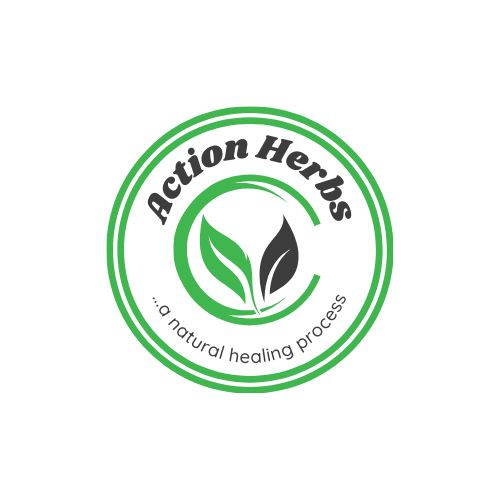Top Beneficial Herbs to Help Reduce Inflammation Today
Inflammation is your body's way to fight off harm. But when it stays too long, it can harm your health. Imagine using nature's power to calm this storm without harsh chemicals. We'll look at herbs like turmeric and chamomile that have been trusted for centuries.

Key Takeaways
- Inflammation can have a detrimental impact on overall health when it becomes chronic.
- Natural anti-inflammatory solutions, such as herbal remedies, offer a safe and effective way to address inflammation.
- Certain herbs like turmeric, ginger, and green tea possess potent anti-inflammatory properties.
- Incorporating these herbs into your daily routine can help reduce inflammation and provide holistic health benefits.
- Understanding the science-backed benefits of these herbal allies is key to harnessing their full healing potential.
Understanding Inflammation and Its Impact on Health
Inflammation is a complex response of the body's immune system. It protects us from pathogens, damaged cells, or irritants. While acute inflammation is good, chronic inflammation can harm our health.
Acute vs. Chronic Inflammation
Acute inflammation happens right after an injury or infection. It shows as redness, swelling, heat, and pain. The body is trying to heal. Chronic inflammation, however, lasts a long time and can cause health issues if not treated.
Why Natural Anti-inflammatory Solutions Matter
More people are looking for natural ways to fight chronic inflammation. Natural remedies, like those from herbs, are safer than synthetic drugs. Adding these to your life can help manage inflammation and improve health.
The Role of Herbal Medicine in Modern Healthcare
Herbal medicine has been used for ages and is now recognized in modern healthcare. Many herbs have anti-inflammatory properties, making them a good choice for managing inflammation. As people want natural health solutions, herbal medicine is becoming key in healthcare.

"The increased use of herbal medicine in modern healthcare reflects a growing interest in natural, holistic approaches to managing health conditions, including inflammation."
Beneficial Herbs to Help Reduce Inflammation and Their Properties
Exploring natural ways to fight inflammation, some herbs shine brightly. Turmeric, ginger, and green tea are well-known for their anti-inflammatory powers. They contain compounds that fight inflammation in different ways, like blocking inflammatory enzymes or reducing oxidative stress.
Other herbs like rosemary, willow bark, frankincense (Boswellia), cat's claw, and bromelain also help. Each has unique compounds that help fight inflammation. For example, rosemary has carnosic acid and carnosol, which are very effective. With its salicin, Willow bark is similar to aspirin and helps with pain and inflammation.
- Turmeric and its active compound, curcumin, are renowned for their ability to modulate inflammatory pathways and reduce the production of pro-inflammatory cytokines.
- Ginger is celebrated for its gingerol content, which can inhibit the activity of inflammatory enzymes like COX-2 and 5-LOX.
- Green tea is rich in polyphenols, such as EGCG, that possess potent antioxidant and anti-inflammatory properties, helping to combat oxidative stress and inflammation.
Adding these herbs to our daily routine can help our health. They can be found in food, supplements, or used topically. These herbal allies are key to achieving and keeping good health.
"The healing power of plants lies in their unique phytochemicals, which can modulate complex biological pathways and support our bodies' natural ability to maintain homeostasis."
Science-Backed Anti-inflammatory Herbs and Their Active Compounds
Science has found that some herbs are effective at reducing inflammation. Let's examine the top anti-inflammatory herbs and what makes them special.
Turmeric and Curcumin Benefits
Turmeric, the bright yellow spice, is known for its anti-inflammatory effects. This is thanks to curcumin, a compound that stops inflammatory molecules from being made. Research shows that curcumin works as well as some drugs but without side effects.
Ginger's Natural Healing Properties
Ginger is also great for fighting inflammation. Its active parts, like gingerols, help reduce inflammation and pain, making it a natural choice for arthritis and muscle soreness.
Green Tea's Antioxidant Power
Green tea is full of antioxidants, mainly catechins like EGCG. These compounds have strong anti-inflammatory effects. They help fight oxidative stress and boost overall health.
Science has also found ways to improve the effectiveness of plant-based anti-inflammatory compounds. Techniques like nanoencapsulation are being explored, which could lead to new uses of natural medicine.
"Turmeric, ginger, and green tea are just a few of the natural wonders that can help us fight inflammation and improve our health."
How to Effectively Use Anti-inflammatory Herbs
To get the most out of anti-inflammatory herbs, we must know how to use them correctly. This means learning about the right amounts, how to prepare them, and any possible side effects with other medicines.
Herbs can be used in many ways, such as supplements, teas, or cooking. However, talking to your doctor before starting any new herbal treatment is very important. This is especially true if we have health issues or take other medicines.
Learning how to use anti-inflammatory herbs correctly is vital. Knowing the correct dose for supplements or how to make the best herbal teas can help a lot. This way, we can ensure these natural remedies work well for our health and happiness.